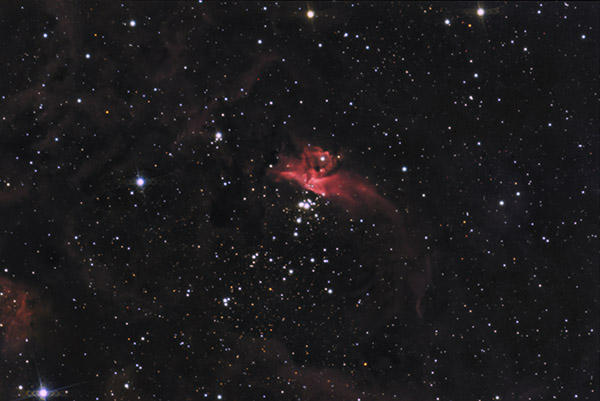Click for larger image (59%)
| Catalogue and alternative designations | NGC
6357
|
| Type | Emission nebula |
| Position | 17 24.6, -34 10 |
| Constellation | Scorpius |
| Camera and Telescope | STXL6303 and 36.8cm RCOS Ritchey Chretien |
| Focal Ratio | F9 |
| Exposure Details | LRGB
120:70:110:70 with Astrodon
series 2 near infrared filters.
All exposures unbinned.
Red is assigned to a band
peaking at 850nm, Green at 830nm
and Blue at 750nm. The
infrared luminance filter blocks
all wavelengths shorter than
700nm.
|
| Description | For
reasons unknown, NGC 6357 is
forming some of the most massive
stars ever discovered. One such
massive star, near the center of
NGC 6357, is framed above
carving out its own interstellar
castle with its energetic light
from surrounding gas and dust.
In the greater nebula, the
intricate patterns are caused by
complex interactions between
interstellar winds, radiation
pressures, magnetic fields, and
gravity. The overall glow of the
nebula results from the emission
of light from ionized
hydrogen. Near the more obvious
Cat's Paw nebula, NGC 6357
houses the open star cluster
Pismis 24, home to many of these
tremendously bright and blue
stars. The central part of NGC
6357 shown spans about 10 light
years and lies about 8,000 light
years away toward the
constellation of Scorpius.
(Description taken from APOD)
|
